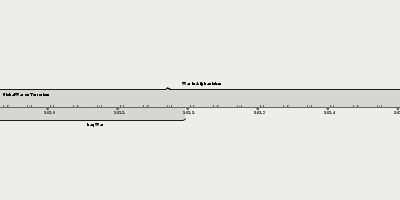jul 1, 2020 - United States–Mexico–Canada Agreement
Description:
The Agreement between the United States of America, the United Mexican States, and Canada (USMCA) is a free trade agreement among the United States, Mexico, and Canada, in effect from July 1st, 2020. It replaced the North American Free Trade Agreement (NAFTA) implemented in 1994. Further, it is sometimes characterized as "NAFTA 2.0", or "New NAFTA", since it largely maintains or updates the provisions of its predecessor. The region including Canada, Mexico, and the United States is one of the world's largest free trade zones, with a population of more than 510 million people and an economy of $30.997 trillion in nominal GDP – nearly 30 percent of the global economy, and the largest of any trade bloc in the world.All sides came to a formal agreement on October 1st, 2018, and U.S. president Donald Trump proposed the USMCA during the G20 Summit the following month, where it was signed by him, Mexican president Enrique Peña Nieto, and Canadian prime minister Justin Trudeau. A revised version reflecting additional consultations was signed on December 10th, 2019. It was ratified by all three countries, with Canada being the last to ratify on March 13th, 2020. Following notification by all three governments that the provisions were ready for domestic implementation, the agreement came into effect on July 1st, 2020.
USMCA is primarily a modernization of NAFTA, namely concerning intellectual property and digital trade, and borrows language from the Comprehensive and Progressive Agreement for Trans-Pacific Partnership (CPTPP), of which Canada and Mexico are signatories. Key changes from its predecessor include increased environmental and working regulations; greater incentives for automobile production in the U.S. (with quotas for Canadian and Mexican automotive production); more access to Canada's dairy market; and an increased duty-free limit for Canadians who buy U.S. goods online. The USMCA contains a provision for review and adjustment in 2026.
The 2025 United States trade war with Canada and Mexico began on February 1st, 2025, when at the beginning of his second non-consecutive term, President Trump cited an "extraordinary threat posed by illegal aliens and drugs" and imposed an additional 25% tariff on imports from Canada and Mexico. One day before they were set to take effect, the tariffs were paused for 30 days (from February 4th to March 4th), after Canada and Mexico agreed to increase national security measures at their respective borders with the US, and to allow for negotiations on economic agreements. Canada and Mexico accused the United States of violating the USMCA when 25% tariffs went into effect on March 4th, 2025. On March 6th, 2025, two days after the tariffs took effect, Trump announced that all USMCA compliant products would be exempt from the tariffs until April 2nd, 2025.
Each signatory has a different name for the agreement—in the United States, it is called the United States–Mexico–Canada Agreement (USMCA); in Canada, it is the Canada–United States–Mexico Agreement (CUSMA) in English and the Accord Canada–États-Unis–Mexique (ACEUM) in French; and in Mexico, it is called Tratado entre México, Estados Unidos y Canadá (T-MEC) in Spanish.
Added to timeline:
Date:
jul 1, 2020
Now
~ 5 years and 4 months ago
